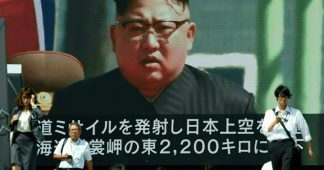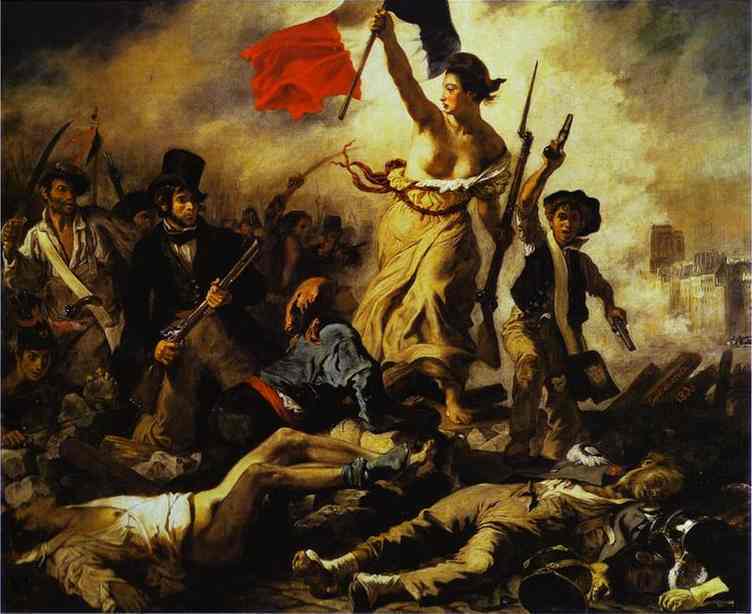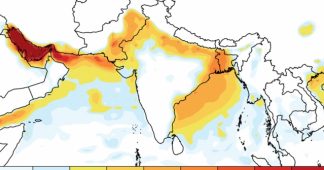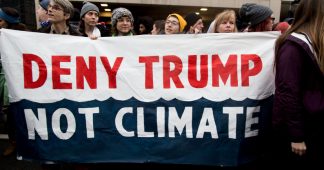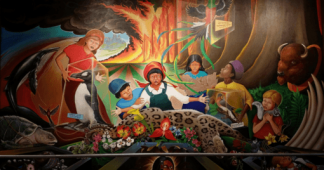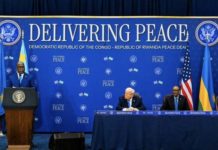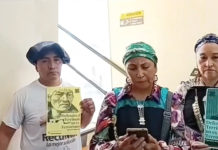John Davis
March 15, 2018
In The Atlantic, November 1, 2007, Cornell West wrote that “Niggerization is the wholesale attempt to impede democratization – to turn potential citizens into intimidated, fearful and helpless subjects.” He went on to suggest that post 9/11, there had been a similar process inflicted on the wider American population. “Like the myopic white greed, fear, and hatred that fueled the niggerization of black people, right-wing fear, and hatred have made us all feel intimidated, fearful and helpless in the face of the terrorist attacks.” As the fear of imminent terrorist attacks has faded, we have found new ways to live in fear.
Now, we are the people of the gulf and of the islands who fear for every ripple on the water, every puff of wind, and every drop of rain. We are the people of the drought who fear for every day without moisture. We are the people of the temperate lands who fear the extremes of heat and cold. We are the people of the tropics who fear the cold, and of the polar landscapes who fear the melting of the ice. We are the people of the burned lands who fear for every wisp of smoke. We are the people of the debris flows who fear for every rivulet and rill. We are the people of the flood lands who fear for every rise in the water; we are the people of the tide who fear its every incoming, and we are the people of the storm who fear its every surge.
But these new fears are not necessarily debilitating – they can also breed solidarity and resistance. What is clear is that the impacts of a warming climate respect no national boundaries. They present societies, in their shared distress, with opportunities for common cause across borders. But deep divisions exist that run along both national and hemispheric lines. Even as the Global South industrializes, there remain issues of accountability for global warming. The Global North having, historically, produced the bulk of the offending carbon-dioxide is now consuming the lion’s share of the goods manufactured in the Global South. Greener production in the North continues to be offset by off-shored production in the South using generally more carbon-intense energy sources. Additionally, political ideologies such as neoliberalism cut across attempts to solve or ameliorate climate issues through a shared environmentalism.
Most insidiously, while countering Islamic terrorism feeds directly into the imperial proclivities of the North’s military-industrial complexes and their political aggrandizement and economic enrichment, there has developed a zero-sum consideration that couples expanded resources poured into the War on Terror with global warming denialism. Even when this linkage is not explicit, as under the Obama administration, it is rendered implicit by the allocation of federal resources.
Neoliberalism remains in the ascendance in much of the Global North and the model of economic growth upon which this ideology is based would necessarily founder if heading off calamitous global warming were taken with any seriousness. The continued obscenity of the U.S. Military budget would certainly be made vulnerable if climate change became a focus of the U.S. federal government. While Trump’s refusal to have this country participate in the COP23 agreement is an extreme symptom, his calculus is baked into the compromises and concessions intrinsic to the agreement.
Expect no neoliberal salvation of our climate-shadowed souls. We are the children of fossil capital. We are the burners of the stolen fuel. We are the ravenous consumers of the earth, now disinherited by our willful acts of predation and sacrilege. We are the people of the Anthropocene.
Can we now accept its most symptomatic epochal condition and, in environmentally conscious solidarity, accommodate global warming and, even at this late stage, head off its most extreme temperature rise? We, the People of the Anthropocene, own the fear of Weather Terrorism. This fear is not the creation of the oligarchy and the governments they control – which, in fact, are often committed to denying the threats of global warming both because they are fully complicit in its cause and because any reasonable, non-geo-engineering attempt to contain it would strip them of their power.
It is no longer, as West reflected on the manufactured War on Terror, only right-wing fear and hatred that have made us all feel intimidated, fearful and helpless, a condition that ultimately cripples democratization. It is the weather and its extremes that have also rendered us, for the moment, supine and frightened. However, if we fully accept our vulnerability then we can, perhaps, exult – not for the fearsome oppression that the super-sized weather events inflict, but for the opportunities they represent to shape communities of resistance. That resistance may be aimed purely at the accommodation of new climate realities and the amelioration of our relationship with the enfolding natural world, but its practice will inevitably involve the tearing down of entrenched political and economic models.
Adrian Parr, for one, is exultant. In Birth of a New Earth, 2018, she promotes the concept of commonism which she identifies as a strategy for creating “situations of radical alterity from within the privatized landscape of neoliberal planetary urbanism”. The models she cites are outside of the neoliberal realm, but she argues that they could serve as emancipatory disrupters of it. She relates the experience of Cuba after the collapse of the Soviet Union created a shortage of oil-based fertilizers and pesticides as well as agricultural machinery (and the subsequent partial trade blockade instituted by this country), forced it to “creatively blend food-autonomy, land use and economic policies with small scale community driven agricultural activities” in a system of organic urban farming known as Organopónicos. Similarly, in Venezuela, the Agro Ciudad movement developed as a response to the oil crises of 2002 and 2003 and the global food crisis of 2009, where food is produced in schools, colleges, factories, by cooperatives, neighborhoods and families. These are programs that build community solidarity and a local control of the fundamental human right of nourishment. It is in these practical pursuits of a common endeavor that true democracy can be birthed.
In this country, The Detroit Black Community Food Security Network was created to counter the urban blight, shrinking population and food deserts of that prototypical rust-belt city and emphasized the role of community building in urban commoning and then grew to address not only food security but congruent issues such as drug-use, unemployment and homelessness.
The economic and political events that prompted these solutions in the face of existential crises are surely comparable to the kinds of impacts that we will experience as global warming continues to unfold across the U.S. The community responses to the devastation of Puerto Rico, Cuba, other Caribbean Islands, Texas, Florida and Louisiana wrought by last year’s explosive hurricane season suggest that, as Parr writes, “the singularity of local experiences, resources and capacities” can coalesce around a “universal attitude that aspires for the dignity and flourishing of all life on earth both today and into the future”.
It is communities on the margins in some of the most ecologically vulnerable places in the country that we can expect to see solutions in local sustainability (evidenced, quite simply, by survival in radically changing geo-physical circumstances) begin to challenge the hegemony of militarized emergency services and the Federal Emergency Management Agency (FEMA) whose implicit goal is the restoration of ‘business as usual’ despite the clear evidence of extraordinary circumstances. Communities along the New Orleans coastal waters are resisting re-location to higher ground (where they might continue to contribute to the creation of surplus value that is then suctioned-off into the gaping maw of the 1%) and are prepared instead to tough it out in what are fast becoming wet-slums, but which survive socially and economically in conditions, like favelas, of ‘radical alterity’. The hasty restoration of Breezy Point, in New York City, burnt to the ground during Hurricane Sandy, was a boon to local businesses but ill-serves the community who live in the same jerry-built houses (but of newer vintage) that performed so badly in the storm surge. Residents are fated to endure a few more cycles of destruction as the City, State, and Federal agencies, along with private insurers, continue to paper over this beach-side Potemkin village until their resources run out or the residents wrest control of their own fate. Massive residential post-Sandy re-development at Rockaway Beach (Where Life is a Never-Ending Vacation) built to 100-year flood standards is set to see that vacation end swiftly as once-in-five-thousand-years storm surges roll in.
Even in the burned lands of California’s recent Thomas Fire and last year’s Napa and Sonoma County fires, the majority of the proposed residential re-builds are in the mode of ‘the-same-old-shit’, similar to the houses that burned with such alacrity so recently – fully supported by the reactionary policies of insurance companies, banks, local municipalities and state and federal agencies determined to restore ‘business-as-usual’, as quickly as possible in denial of the altered realities of global warming.
Concerns for changing meteorological conditions have resulted in a legitimate climate of fear. It is a primal fear akin to the dread of predatory wild beasts. It is a fear that is born of our fundamental situation in a global ecology of both extreme threats and sublime comforts. The ironies of the situation, of our kind having initiated this radical change in the composition of the atmosphere and its insulating properties does not alter our primal reactions to its effects. The fear, thus far, has not been co-opted by West’s ‘myopic white greed, fear, and hatred’. It is a fear from which can spring, as Parr suggests, “extraordinary emancipatory and egalitarian promise”.
